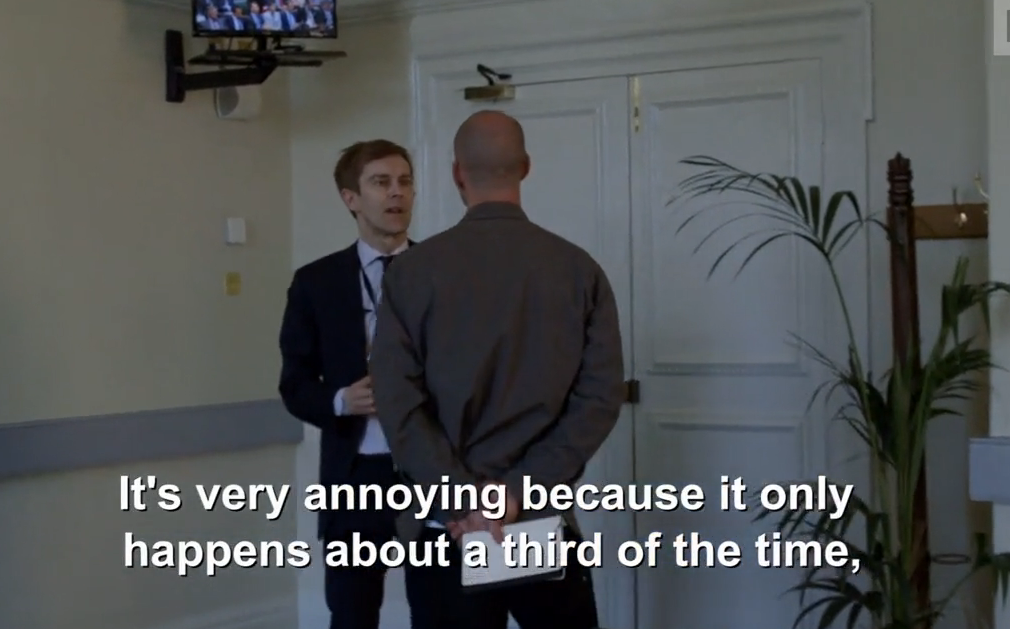
A bureaucracy is any administration system for the delivery of government. You know, the things we expect the state to do for us, guided by people called politicians that we elect.
To be ‘post’ all that is to ask a lot of any new data/executive system and any set of citizens. Modern societies came up with representative government and a civil service precisely because modern life demands a bureaucracy.
And yet most governmental bureaucracies have become self-serving, self-enclosed, sclerotic systems. While they do an enormous amount of good, they do too much and they do too much badly.
So why not sell it off? Is the PBAge just Thatcherism Web 2.0?
There is certainly an underlying faith in Markets. They didn’t have to invite David Cameron to show that this version of digital democracy is of a right-of-centre hue. Many of the examples given at the PBAge conference were predicated on replicating retail or service industry relationships.
However, I think the lesson the last 20 years has been that it is very difficult to introduce competition and consumerism in a crude way into many areas of social, domestic and public life. Government is not a good user of commercial collaborators. Look at Defence Procurement for example. Running a whelk stall is different to providing social services.
So the PBAge agenda goes further than simply bringing the private sector into bureaucracy or farming out services to private companies. If you read the background briefing for PBAge it talks about using data disclosure and information openness to transform the relationship between private citizen and public administration.
This requires much more than privatisation of information services or the liberation of data. It means that we have to close the digital divides that exists within individuals and communities and demographic and geographical areas.
As Martha Lane Fox pointed out to the PBAge Conference, that means a major investment in media literacy across the population. All the people need more skills and better understanding of new systems to build the scale of participation that will make a PBAge work.
It also means thinking through the politics of accountability. This doesn’t follow on inevitably from transparency. Simply making data free doesn’t mean that you will get better decision-making. That’s why the deliberative democracy element of the PBAge conference was important.
We have to think through how to balance competing claims of openness and privacy or collaboration and copyright. Yes, you can do great things with online data – look at how people now book their own flights and process their own banking. But at some point those services have to relate to real people and the real world.
Even Facebook has to be regulated – internally and externally. Even Google is subject to politically-informed restraint (ask China). How we decide how that happens becomes more, not less, important in a PBAge.
So someone still has to facilitate and negotiate the post bureaucratic state. I hope that citizens as individuals and groups will do much of that job. But perhaps we don’t want to spend our whole lives running government. So who will help, if not civil servants?
I think that journalists will be key to the process. The opening up of data is a great opportunity for the news media to redefine itself, to find fresh markets and to gain a new public role.
Mainstream media at its best has always been quite good at sifting and checking. But we were less good at fact-based journalism. The PBAge requires that we become much more numerate and transparent. It means we have to invest in the kind of data visualisation that we glimpse at publications like the FT with its brilliantly data-based journalism.
Of course, it also means a new relationship between media, citizens and politicians. I think David Cameron – along with many people in the Labour Party – recognises this.
At one level the politicians welcome a chance to unload some of the responsibility back on to the citizen. “Dear Voter, if you are so cynical and sceptical about government, then you have a go” they seem to be saying.
And in hard-pressed economic times it is also good housekeeping. That’s certainly a big driver for pioneering authorities like Windsor Council. When people are involved they help drive down costs. When systems are open to scrutiny they tend to become more efficient. That’s why it’s good idea to have all public spending over a certain limit put online.
If the only benefits of all this are utilitarian then that will be good. But the Post Bureaucratic Age offers an opportunity to revitalise our democracy, too. You don’t have to be a Cyber Utopian to recognise that greater engagement on practical issues may lead to participation in a more deliberative democratic system.
Journalism will be crucial to this. The PBAge is based on access to data. But that data has to be accessible, usable and relevant. It also has to be examined. And discussed. Crowd-sourcing and social networking – as pioneered by MySociety and its many successors – offers a way to do this. Now is the time for Mainstream Media to embrace this change and create Post Bureaucratic Journalism.
Instead of relying on Whitehall or Council diaries and agendas we must now work harder to turn these new open primary sources into news you can use.
The East End of London is a good place to launch an idealistic political movement. It is the home of political adventures as diverse as the Salvation Army and anti-fascism with the City’s towers of capitalism just around the corner. But Stephen Shakespeare’s Post Bureaucratic Age hopes to meld moralism with mammon in social media. As his excellent manifesto for the PBAge Conference explained, new media technologies give us the tools to save money and empower citizens to transform governance:
‘The foundation of all post-bureaucratic policies is open data. Without it, the process cannot even get started. With it, not much more is required of the state. The NPBA is ultimately a campaign for see-through government.’






Interesting campaign, and I agree journalists can play a part in it…but a big mission for journalism must be to become more transparent itself first. Even little things like acknowledging when a story is based on agency copy, or getting rid of noddy shots would be a good start, although newsrooms can use social media to offer a behind-the-scenes view too.